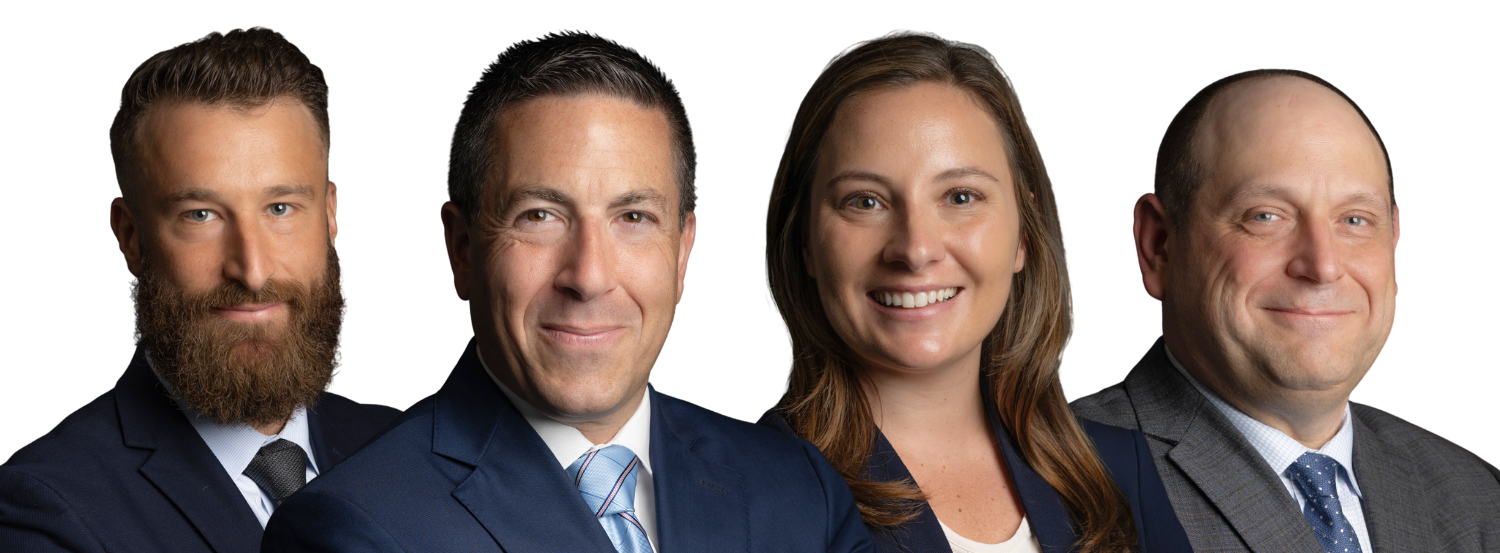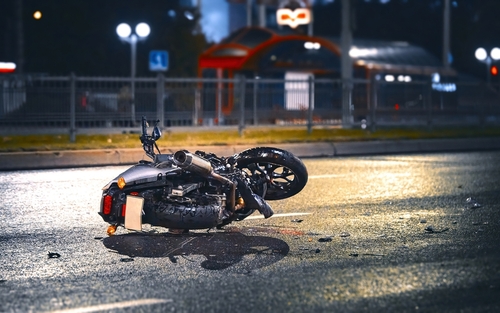Motorcycle accidents are often catastrophic. Unlike cars, motorcycle riders don’t have the protection of a steel body and chassis, airbags, or seatbelts. The lack of protection can spell disaster in accidents, potentially resulting in severe injuries when a compact motorcycle frame meets the massive frame of nearly any other car or truck on the road.
If you’ve been injured in a motorcycle accident, following a few essential steps is important. In completing this process, you can promote your health and well-being, ensure your rights are upheld, and determine your next steps in the legal process.
What To Do After a Motorcycle Accident
Motorcycle accidents can be scary and may result in severe injuries due to the lack of protection against impacts. If you suffer an injury in a motorcycle accident, follow these steps:
Call 911
First and foremost, call 911. While you wait for first responders to get on the scene, do your best to get out of the way of traffic. Wait on the shoulder of the road or in another safe area away from traffic until help arrives. Don’t attempt to pick up the pieces of your motorcycle, as this could put you in harm’s way as traffic continues to pass by.
Get Medical Attention
Once first responders arrive on the scene, get medical attention immediately. This is of utmost importance, as your health and well-being are a priority. Ensure you get checked out, even if you don’t think your injuries are severe.
Sometimes, specific injuries, like internal organ damage or bleeding, aren’t apparent at first glance. Instead, they may go undetected for several hours or days until the symptoms begin to appear.
So, even if you think your injuries are minor, ensure you have a medical professional examine you. If emergency services don’t examine or treat you at the scene, go straight to a hospital for examination. Prompt medical treatment can help identify hidden and potentially life-threatening injuries, so acting quickly is essential.
Additionally, if you delay seeking medical care after your accident, the defendant may claim that your injuries were unrelated to the motorcycle accident. Having a trail of medical records documenting your injuries after the crash can be essential in connecting the two.
Gather Evidence
Evidence plays a vital role in building a case and establishing fault. If possible and when safe to do so, gather as much evidence on the scene as soon as possible, as roadway and weather conditions can shift rapidly. Here are a few things you might collect on-scene:
- Witness statements and contact information
- The other driver’s insurance and contact information
- Photos of property damage
- Photos and videos of the scene, including current weather and roadway conditions
- Photos and videos of your injuries
However, if your injuries are severe or you can’t safely gather information, don’t stress about it. Your lawyer can help you collect information after the fact when you’re in recovery.
Be Cautious of What You Say
Generally, insurance providers require policyholders to report any accidents that occur regardless of fault. Report the accident to your insurance provider as soon as possible to avoid any complications that could arise if the at-fault party tries to assert that you were to blame and make a claim against your insurance policy.
Additionally, you may receive a phone call from the at-fault party’s insurer asking you for a recorded statement. It’s essential to be cautious of what you say here, as the insurer could use statements you make against you. Even innocent statements, like “I’m okay,” could be used against you.
So, politely decline until you hire a lawyer representing you and your best interests. Once you hire a lawyer, redirect all questions from the other party’s insurer to your lawyer.
Talk to An Attorney
Discussing your case with an attorney is one of the most important steps in the aftermath of your accident. In some instances, the other driver may attempt to shift the blame to you and pursue compensation from you. In cases where the other driver is wholly at fault, their insurance provider may offer pitiful settlement amounts that may not cover your accident-related expenses.
This is where a skilled lawyer comes in. Your personal injury lawyer can help you navigate your case, from the complexities of the legal system to claims you are to blame for the accident to settlement offers from the insurer. The combined process can be overwhelming, especially when dealing with a serious injury, but our experienced team at Fogelman Law Firm is here to help.
Contact a lawyer as soon as possible after your accident, but after you receive medical care, as this is the most crucial step. Your lawyer will guide you through the process and help you learn what not to do after a motorcycle accident to avoid harming your case.
What Not To Do After a Motorcycle Accident
Seeking medical attention, gathering evidence, and seeking legal guidance are must-dos after a motorcycle accident. However, there are a few things you shouldn’t do, including:
- Leave the scene without making a statement or gathering evidence
- Not seek medical attention
- Make recorded statements with the at-fault party’s insurer without talking to your lawyer
- Post about your accident on social media
- Speak with the liable party, as seemingly innocent statements could be twisted into an admission of fault
Get Personalized Help With Your Motorcycle Accident Case
If you or a loved one has been involved in a motorcycle accident, seeking medical attention should always be your first step. However, once the dust settles and you’ve gotten the proper medical care, contacting a skilled motorcycle accident lawyer is crucial.
Our experienced team will help you through the process, guiding you on what to do after a motorcycle accident (and what not to do). Contact us today for a free consultation and to learn how we can help with your motorcycle accident case.






